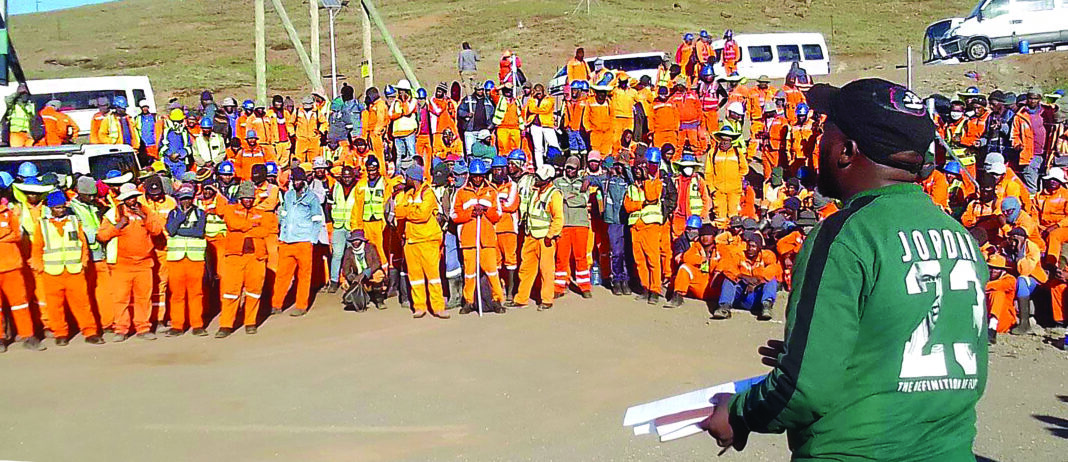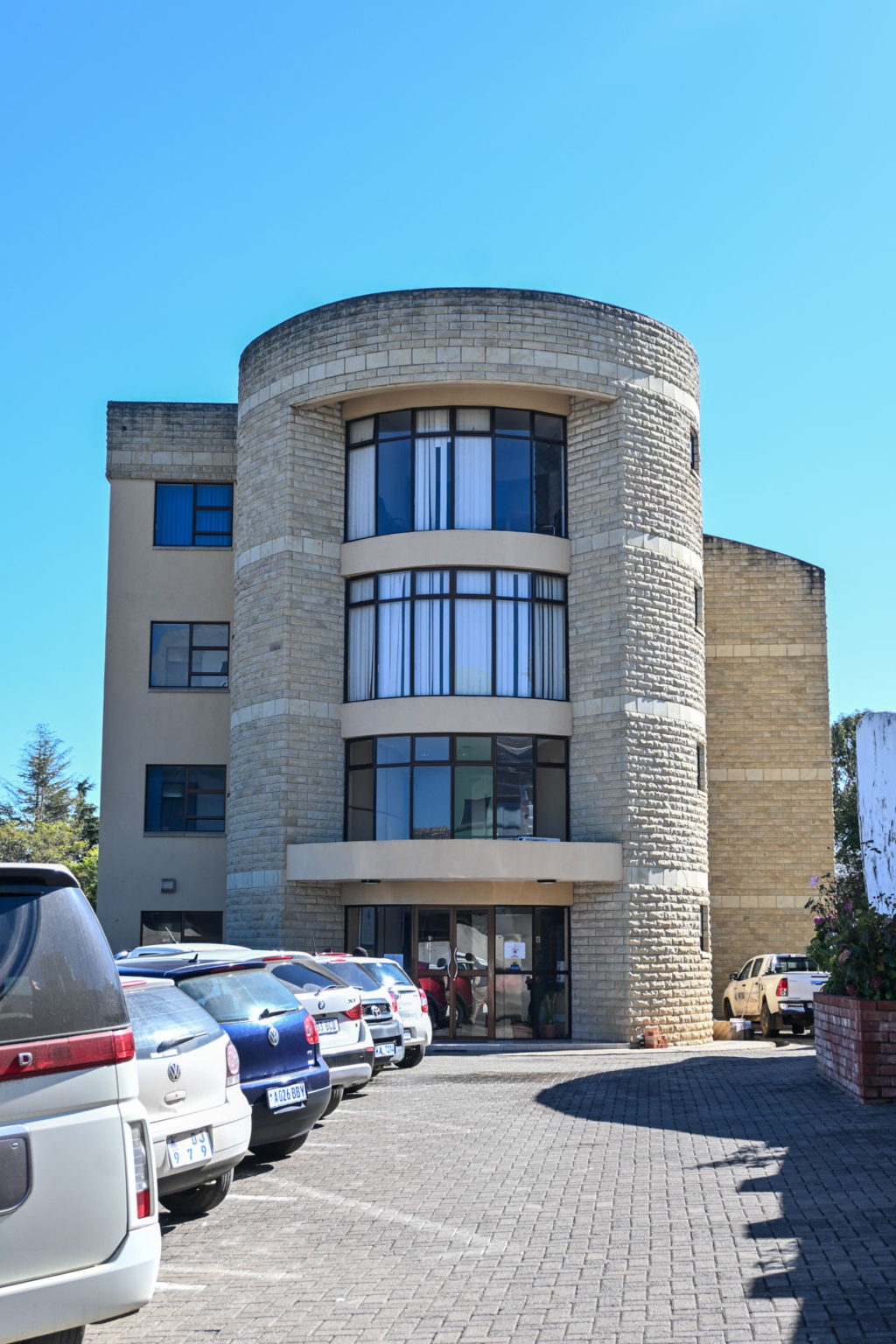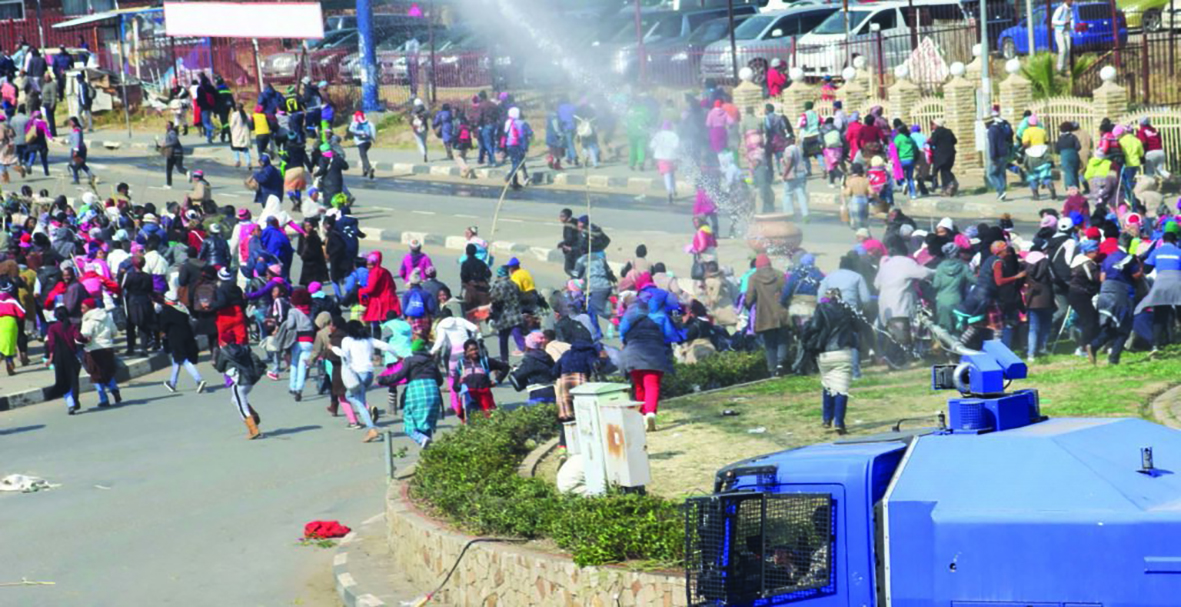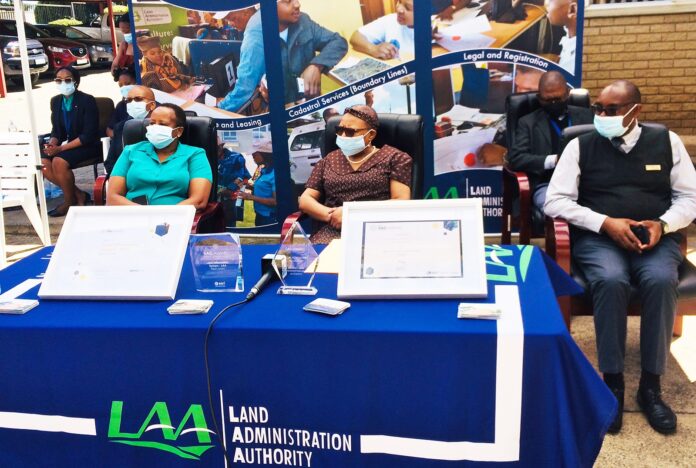The dispute over a portion of land designated for the Polihali Dam construction project in Mokotlong continues to intensify as stakeholders clash over rights and legal interpretations.
Lehlohonolo Motšoari
The parliament’s natural disaster cluster finds itself ensnared in an ongoing deadlock concerning the issuance of a Mining Lease to Refela Holdings, despite land reservations made by the Ministry of Local Government and Chieftainship Affairs in 2012.
The latest meeting, held this week, failed to yield a resolution.
Key stakeholders, including representatives from the Ministry of Mining and Refela Holdings, convened before the committee.
The dispute stems from the allocation of a Mining Lease to Refela Holdings by the Ministry of Mining within an area earmarked for the construction of the Polihali Dam, part of Phase II of the Lesotho Highlands Water Project (LHWP).
In a petition submitted to the portfolio committee, Refela Holdings demanded compensation from the Lesotho Highlands Development Authority (LHDA) for an area designated as part of the Polihali Dam project.
Mohapi Khofu of Refela Holdings, speaking to Newsday this week, emphasised the disputed land’s significance, saying: “This land we are seeking compensation for is where we were actively mining dolerite. LHDA claims it is agricultural, but it is actually a valley.”
Chairperson of the committee, Moeketsi Motšoane, highlighted the conflicting assertions noting that there was a discrepancy between LHDA and Refela Holdings.
“The 2012 Legal Notice reserved the land for a public purpose, yet the Mining Department issued a Mining Lease to Refela in 2014. LHDA claims they have compensated community members for the same area Refela seeks reimbursement for,” Motšoane said.
Khofu told this publication that Refela acquired the mining rights legally and have done consultations with stakeholders including the community.
“According to the legal procedures outlined by (Mathalea) Lerotholi, they (the ministry of mining) have the authority to grant mining rights through the Mines and Minerals Act. The Act supersedes legal notices and does not impose any restrictions on exercising mining rights,” Khofu said.
The committee convened for a second meeting on April 10 this year, during which the discussion was adjourned to Tuesday this week. This decision came after the Legal Director of the Mining Department expressed unawareness of the 2012 Declaration.
Explaining the rationale behind the adjournment, Motšoane elaborated: “We convened the April 10 meeting with the Mining Department to seek justification for granting a Mining Lease despite the Legal Notice issued by former Minister of Local Government, Pontšo Sekatle.”
He added: “We postponed the meeting to today because Mathalea Lerotholi claimed she was not ‘personally’ aware of the 2012 Legal Notice declaring the land for public purpose.”
“In accordance with Section 4 of the Mining and Minerals Act 2005,” Lerotholi reiterated in the previous meeting, “mineral rights can only be acquired and held in accordance with the provisions of this act.”
She stressed that the Mining Act aligns with the constitution and imposes no restrictions on its application. “The 2012 Declaration pertained to a scheme area, which encompassed a larger area intended for the project,” she clarified. “This declaration did not preclude us from issuing mining rights.”
“In 2015,” Lerotholi continued, “the Ministry of Local Government issued a legal notice specifying an area of the project. However, this does not prohibit us from granting mining rights as long as there are minerals to be mined. I fail to see any wrongdoing in our actions.”
On the other hand, Tšeliso Moroke, a member of the committee, concurred with Lerotholi’s assertion regarding the constitutional empowerment of Acts.
“These gazettes derive their authority from the Land Act (2010),” he contended. “However, you are suggesting that the Mining Act (2005) supersedes these Legal Notices, which I find disagreeable. The Land Act (2010) grants authority to these Gazettes.”
In response, Lerotholi defended her position, indicating that if the Land Act (2010) imposed any restrictions, they would have been explicitly stated in its sections.
The portfolio committee then suspended proceedings to seek additional legal clarification before reaching a conclusion.
Khofu expressed optimism that a resolution would be reached.
According to the Resettlement Action Plan Summary by the African Development Bank Group, the compensation and resettlement principles and policies of the LHDA are deeply rooted in the Constitution of Lesotho and are in alignment with the country’s laws.
The LHDA places a high priority on ensuring fair compensation and resettlement for individuals affected by its projects.
This commitment is reflected in Lesotho’s Constitution, particularly in Section 17, which prohibits the seizure of property without meeting specific conditions.
The primary legislation governing land acquisition for development projects in Lesotho is the Land Act No. 42 of 2010. This Act not only recognises spousal rights but also grants equal powers in land transactions for married couples.
Additionally, other laws such as the Roads Act and the Town and Country Planning Act provide frameworks for addressing specific situations, such as road construction or development within designated planning areas.

Your Trusted Source for News and Insights in Lesotho!
At Newsday Media, we are passionate about delivering accurate, timely, and engaging news and multimedia content to our diverse audience. Founded with the vision of revolutionizing the media landscape in Lesotho, we have grown into a leading hybrid media company that blends traditional journalism with innovative digital platforms.












